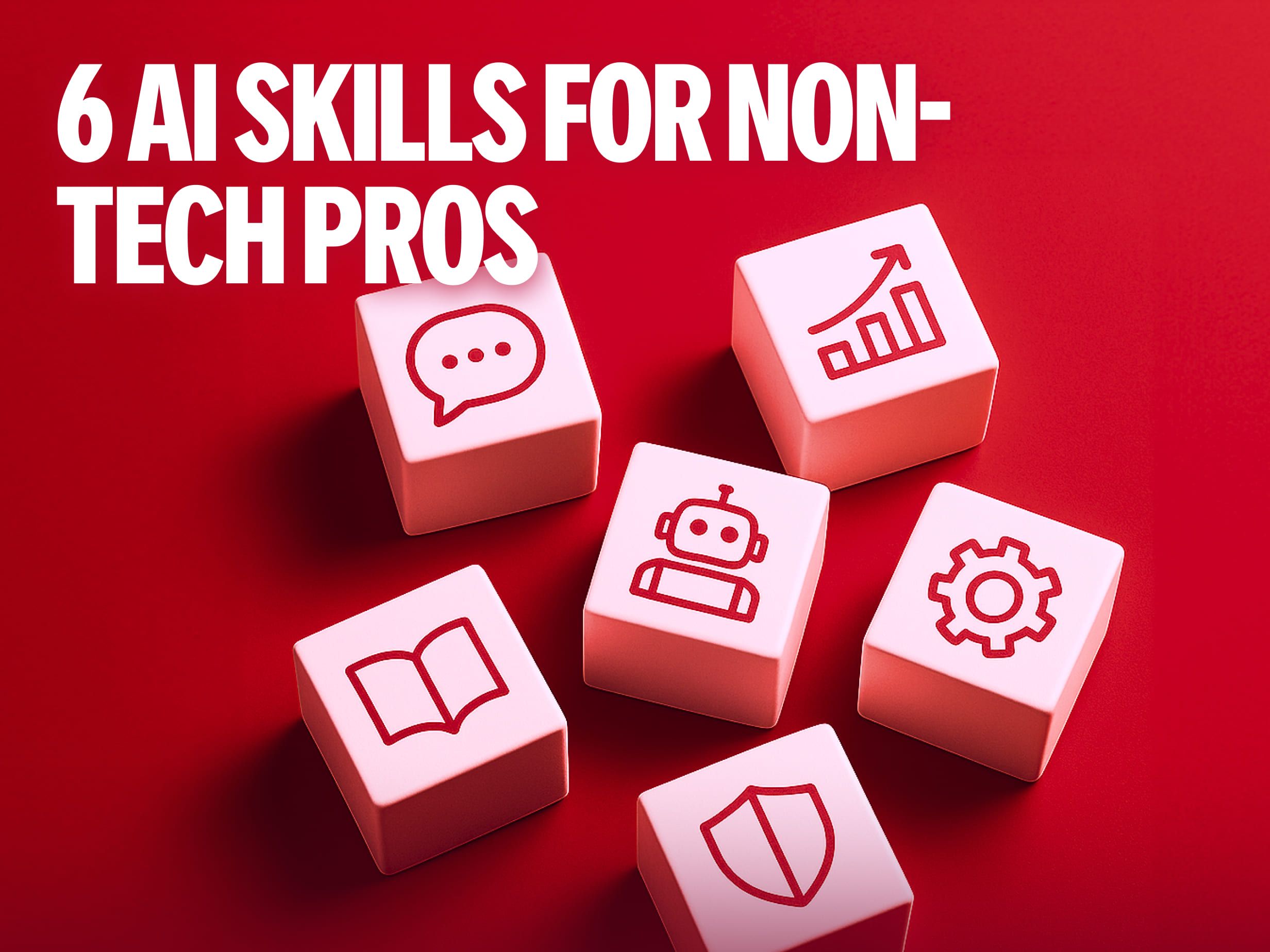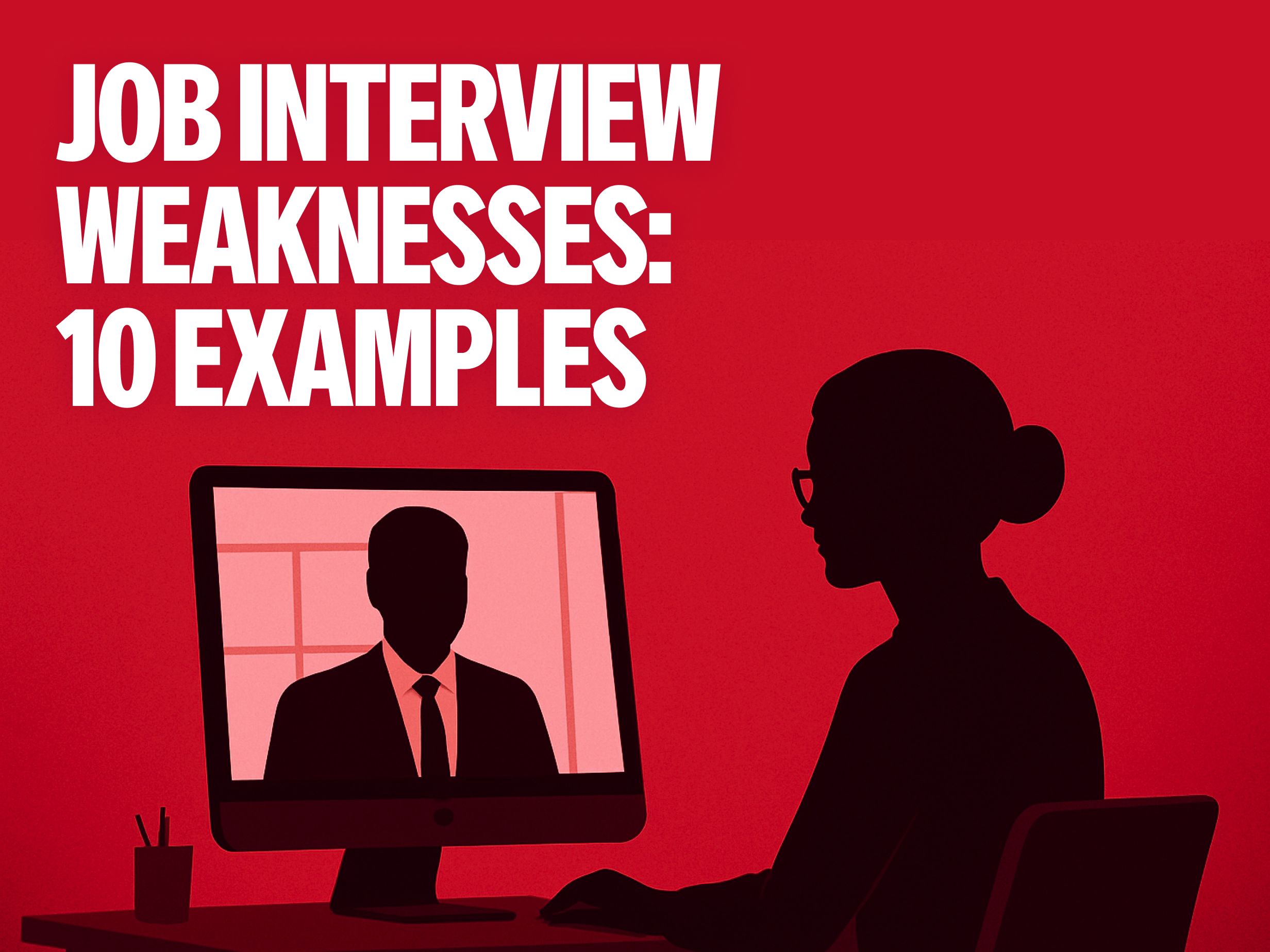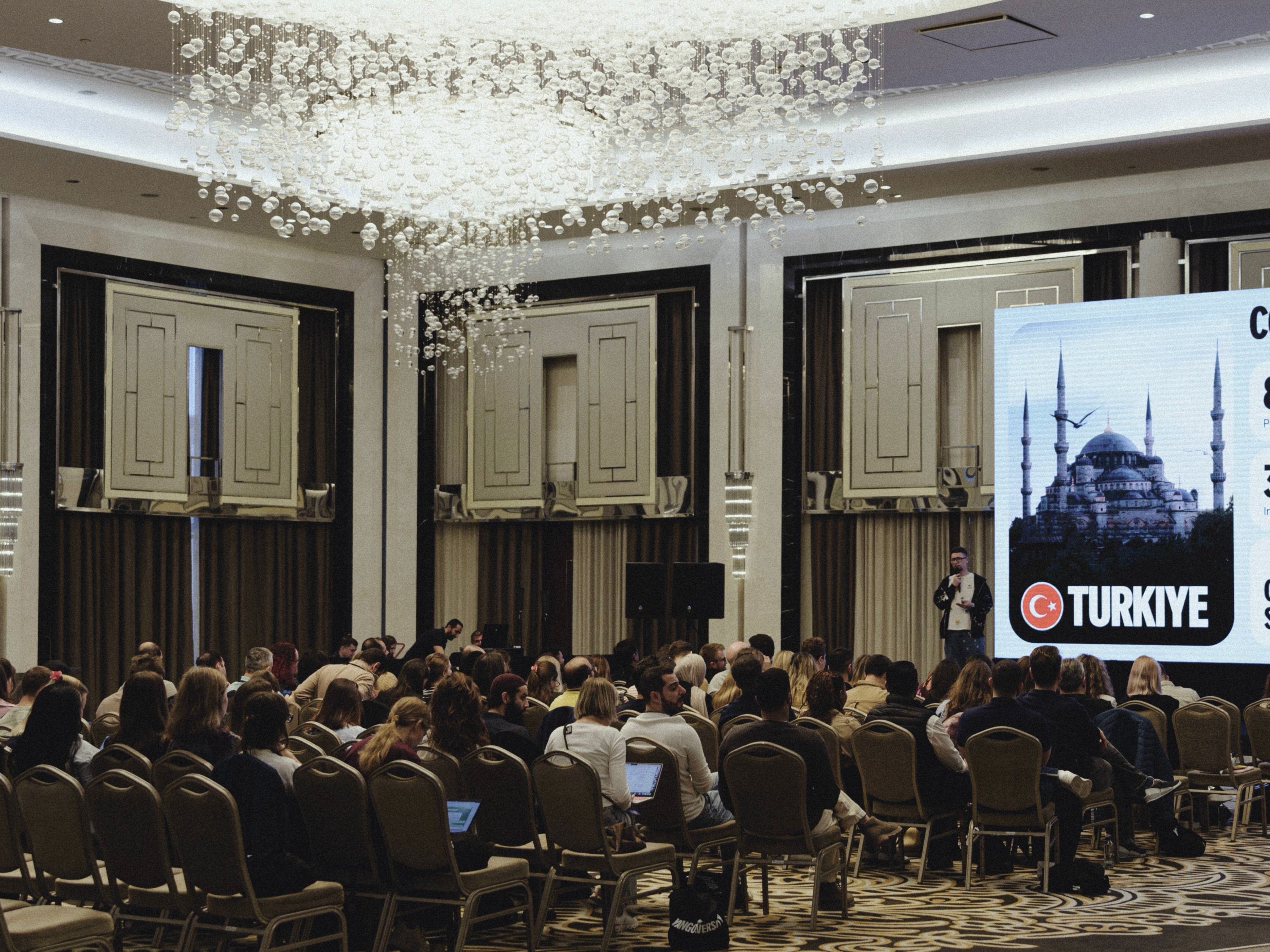Why AI Skills Matter in the Modern Workforce
You’ve probably seen it already: AI creeping into every corner of work life. Doesn’t matter if it’s operations, marketing, logistics, or finance. If you’re in a non-technical job, you’ve likely touched some kind of AI without even realizing.And here’s the twist: it's not about becoming a tech expert. What matters is being able to figure things out, stay flexible, and mix technical and soft skills in a way that helps you work better — not harder.Learning these new skills doesn’t mean memorizing a bunch of tech terms. It’s more about understanding what AI can actually do, where it fits in your job, and how to use it to solve problems that matter. Having that kind of knowledge — even just the basics — can change how you show up at work.And while there’s no one-size-fits-all playbook, there are a few essential skills that show up again and again — especially for people outside of tech. Think of them as your starting toolkit for working smarter with AI, no matter what your role is. Want to go deeper into interview prep or how companies like Yango assess soft skills alongside AI fluency? Here’s a breakdown of the full Yango interview process — with tips from actual recruiters.And it’s not just a theory: recent research from McKinsey (2025) shows that employees are actually three times more likely than their managers to believe that AI will replace at least 30% of their tasks within the next year. That means these skills aren’t just “nice to have”; they’re quickly becoming essential for staying relevant at work.

Foundational Knowledge of Artificial Intelligence
You don’t need a master’s degree to get the hang of AI. Just understanding a few core ideas — things like machine learning models, natural language processing, or neural networks — will help you feel way more comfortable with how these systems work.You’ll also hear terms like predictive analytics, supervised or unsupervised learning, and, yeah — sometimes even dimension reduction. It sounds like a lot, but you’re not here to build it all. You’re here to get how it fits into real-world tools.Let’s say you work in HR and use a platform that screens resumes. If you know that the system’s powered by machine learning, you’ll start asking better questions — like how the model prioritizes candidates or whether it might miss great ones because of biased data. You’re not coding anything, but that basic AI awareness helps you use the tool smarter and avoid blind spots.AI tools that help build foundational understanding
- Google Teachable Machine — great for visualizing how machine learning works in a no-code format
- ChatGPT (with prompts like “Explain neural networks in simple terms”) — perfect for quick concept breakdowns
- DataCamp’s AI Fundamentals track — interactive and beginner-friendly
Data Literacy and Interpretation
Here’s the deal: AI is nothing without data. But if you can read and make sense of that data — charts, dashboards, trends — you’ll already be ahead.You don’t need to become a data scientist. But you do need to feel okay reading what the numbers are saying. Being able to pull out a pattern, spot something weird, or ask the right question — that’s data literacy. Looking to land a role where data skills matter? Check out this practical guide on how to get hired when AI does the screening, especially useful if you want your resume to stand out in AI-powered hiring systems.Take Yango Tech, for example. Yango Tech is using AI in logistics to plan routes and move stuff faster. If you understand how that data flows — from the first click to the last mile — you can jump into AI discussions without feeling lost. That’s how you make decisions, improve efficiency, and actually contribute when the tech talk starts.This is especially important now that more AI systems are acting on their own. A 2025 report from PwC highlights how “agentic AI” (that is, AI that can plan and make decisions without constant human input) is becoming more common in everyday tools. So, being able to read and interpret data isn’t just helpful — it’s what helps you stay in control when the system starts taking action on your behalf.
AI and data tools that build your data literacy
- Looker Studio (Google Data Studio) — for building and interpreting interactive dashboards
- Tableau Public — free version of Tableau to practice reading data patterns visually
- Power BI (for Microsoft 365 users) — widely used in business environments for reading and comparing key metrics
Mastering Prompt Engineering
This one’s sneaky important. When you’re working with tools powered by large language models, how you write your input — your prompt — changes what you get out.That’s where prompt engineering comes in. It’s just a fancy way to say: “How do I ask the AI a question so I don’t waste time?” Doesn’t matter if it’s writing a draft, coming up with ideas, or getting quick info — if you know how to talk to the tool, it’s way more helpful.Imagine you're preparing a social media campaign and need ten catchy headlines. Typing “Write headlines for a product” might give you something generic. But if you say, “Give me 10 catchy Instagram headlines for a skincare brand launching a new anti-aging serum for women over 40,” you’ll get more relevant and useful ideas. Same tool — way better result, just because of how you phrased it. Want to see how AI can coach you through job applications, career planning, or even your next promotion? Here’s how to use AI as your personal career coach.AI tools that help you practice and improve prompt engineering
- Perplexity AI — strong for research-style prompts and fact-based queries
- Notion AI — helps write content in a structured environment, ideal for workplace prompts
- PromptHero — a library of prompt examples for various AI tools and creative needs
- AIPRM (for ChatGPT) — Chrome extension with prompt templates for SEO, marketing, business, and more
Critical Thinking and Ethical Awareness
Here’s something people forget: AI isn’t magic. It gets things wrong. Sometimes, badly. That’s why critical thinking matters.You’ve got to question the results. Don’t assume the AI is right just because it sounds confident. It might be working off biased data. It might miss context. That’s where humans still win. The same goes for ethics. You want to be someone who notices when something doesn’t sit right — whether it’s about data privacy, fairness, or cases where there’s minimal human intervention and things go off track.Yango, which use AI in everything from cabs to ads, are thinking about these things every day. So should the rest of us. Ethics also matter in communication — especially during interviews. Learn how to talk about challenges, growth, and your values during interviews with this guide.And it's not just about ethics — it's also about trust. A 2025 global study by KPMG found that over half of employees worldwide are using AI tools without informing their employers. This highlights a significant trust gap and underscores the importance of fostering open conversations about AI usage and establishing clear guidelines within organizations.AI tools that support critical thinking and ethical awareness
- Google Fact Check Explorer — helps verify claims from AI-generated text
- Consensus — an AI-powered search engine that finds insights backed by academic research
- Fairlearn — an open-source tool to assess and improve fairness in machine learning models
- AI Ethics Canvas by The Alan Turing Institute — a planning framework for evaluating ethical risks in AI projects
I don't look at AI as something that will replace humans. It's a new tool that will allow people to create completely different things. The most important thing AI won't replace is creativity — the ability to figure out what questions to ask and what target picture you want to achieve.
Collaborating Across Functions
Most AI projects? They don’t get built by one person; they need people across teams. Which means: communication matters. A lot.You don’t have to know everything the data team knows. But being able to have a real conversation with them, ask smart questions, and explain what you’re trying to do — that’s gold.AI and collaboration tools to help bridge the gap across teams
- Slack (with AI-powered summarizers and thread insights) — helps you follow conversations across tech and business channels
- Miro + AI — for shared brainstorming, flow mapping, and clarifying ideas visually
- Whimsical — visual thinking + AI for quick diagrams, user flows, and team presentations
- Fellow — an AI meeting assistant that helps structure cross-team meetings and follow-ups

Expanding Your Edge: Bonus AI Skills for Non-Tech Professionals
Want to push your skills a bit further? Here’s where to look next. Start with using AI for daily tasks — scheduling, quick writing, team updates, whatever helps. It adds up.For example: Ella works in customer support. Every morning, she uses an AI assistant to summarize the previous day's tickets and draft follow-up emails. What used to take 40 minutes now takes 10. That time saved? She uses it to improve internal workflows.Then learn a bit about unsupervised learning, automating repetitive tasks, and how AI models are used in real work — like fraud detection or spotting patterns in customers.And here’s another example: Jack is a marketing manager for an online store. He noticed that the customer analytics dashboard started surfacing a segment that tends to shop more after weekends. He doesn’t know how clustering works — but he knew it was time to launch a targeted promo.It also helps to build up problem-solving skills and get good at coming up with creative ideas. Honestly, sometimes the most valuable person in the room isn’t the coder — it’s the one who sees the solution before the prompt is even typed.And finally: During a team meeting, no one could figure out how to simplify onboarding for new hires. Charlie, who’s not technical, said: “What if we use AI to generate answers to common questions from our docs?” That idea turned into an internal chatbot — and saved every new hire an hour a day.Keep growing your understanding of what these tools can do to boost your job performance. Because they’re not just for tech teams anymore.
AI Is for Everyone—And That Includes You
Bottom line: AI’s not just for engineers. It’s for anyone who wants to work smarter and grow with what’s next.If you’re trying out AI-powered tools, learning AI skills for non-tech professionals, or helping your team test new ideas, you’re already in the mix.So go ahead. Be curious. Try things. Ask dumb questions. It’s all part of staying sharp in an AI world that’s moving fast — because it’s not the future anymore. It’s already here. Oh, and if you’re still tweaking your application materials — don’t sleep on this complete 2025 guide to writing standout cover letters. It’s one of the simplest ways to sound human and get noticed.




